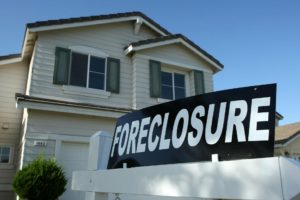The 2022 Foreclosure Abuse and Prevention Act
March 06, 2023

BY: Paula Parrino, Esq.
NY Governor Kathy Hochul signed the Foreclosure Abuse and Prevention Act which became effective immediately, as of December 30th, 2022.
What is the Act and how does it impact foreclosure work?
The Act applies to both commercial and residential foreclosures. One of the main reasons for the Act was the effect of an appellate court decision in Freedom Mortgage v. Engel (37 N.Y.3d 1, reargument denied, 37 N.Y. 3d 926 (2021), which seemingly and unintentionally struck down the Statute of Limitations in mortgage foreclosure actions. One of the goals of the Act is to restore the statute of limitations standard. The Act narrows the circumstances wherein the statute of limitations for mortgage foreclosure actions can be re-set or extended and includes a retroactive provision. So, even if a lender comes to an agreement with a borrower in default and an initial foreclosure action is discontinued, the failure to properly address any statute of limitations concerns could prevent the lender from foreclosing at a later time. Thus the lender must now be careful to ensure that the statute of limitations is not compromised in the event that further legal action against a borrower is necessary.
New York law allows a lender six years to begin a foreclosure action from the earlier of either the date that the lender accelerated the loan (based upon the date of the borrower’s default) OR the maturity date of the loan in question. Once the borrower defaults in making timely mortgage payment, the lender can then elect to accelerate the loan and demand immediate repayment of the entire outstanding balance. After loan acceleration, the lender may begin a mortgage foreclosure action. The commencement of the foreclosure action seeking to recover the entire balance of the loan is considered the acceleration and causes the clock to begin ticking (the six year statute of limitations period starts to run).
If the lender and borrower work out an agreement for a modification and the lender voluntarily discontinues the foreclosure action, in the past, prior to this new Act, the statute of limitations did not continue to run and the lender would be able to have six years to file on a future acceleration of the loan based on a new default that might occur after the terms of the modification take effect.
This Act changes the way the statute of limitations has been handled in the past and states that a voluntary discontinuance, whether by court order, party agreement or motion will not “waive, postpone, cancel, toll, extend, revive or reset” the six year statute of limitations period unless expressly allowed by statute. Thus, with this change in the law, the voluntary discontinuance of a first foreclosure action does not, on its own, deaccelerate the loan. The statute of limitations would therefore continue to run and the lender would be barred by the statute of limitations if the borrower stops making payments.
The borrower, under this new Act, can agree to reset, toll, revive, postpone, cancel, or otherwise extend the six year statute of limitations. However there are challenges associated with this under the General Obligations Law.
This Act applies to any foreclosure action in NY that was pending as of December 30, 2022 or filed thereafter. Any action wherein a judgment of foreclosure and sale has not been enforced is subject to this Act. One potential downside of this Act for the homeowner is that lenders may not be so agreeable to offer a homeowner an opportunity for modification if this opportunity can then threaten the lender’s chance of a future foreclosure action if the borrower again ends up in default.


